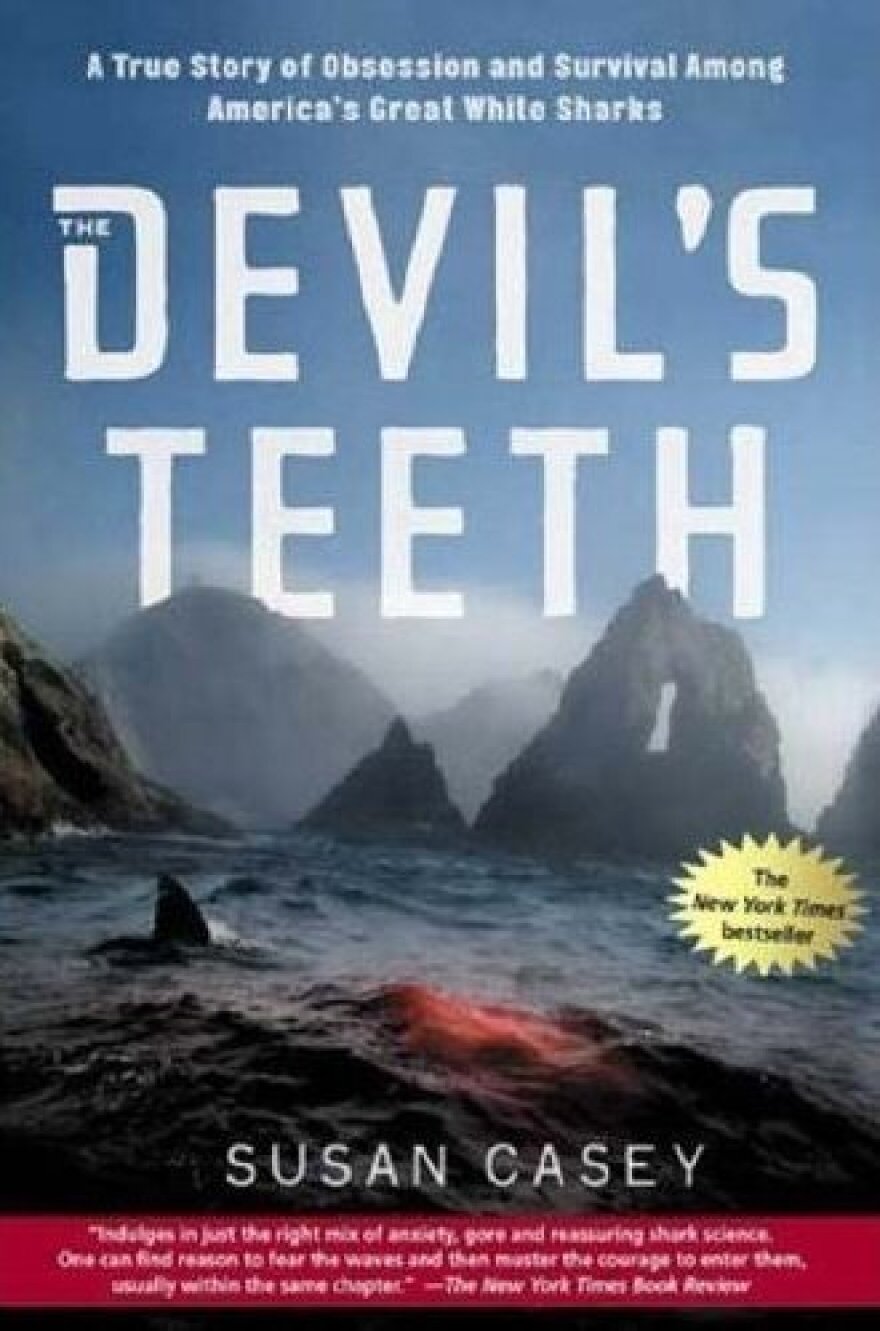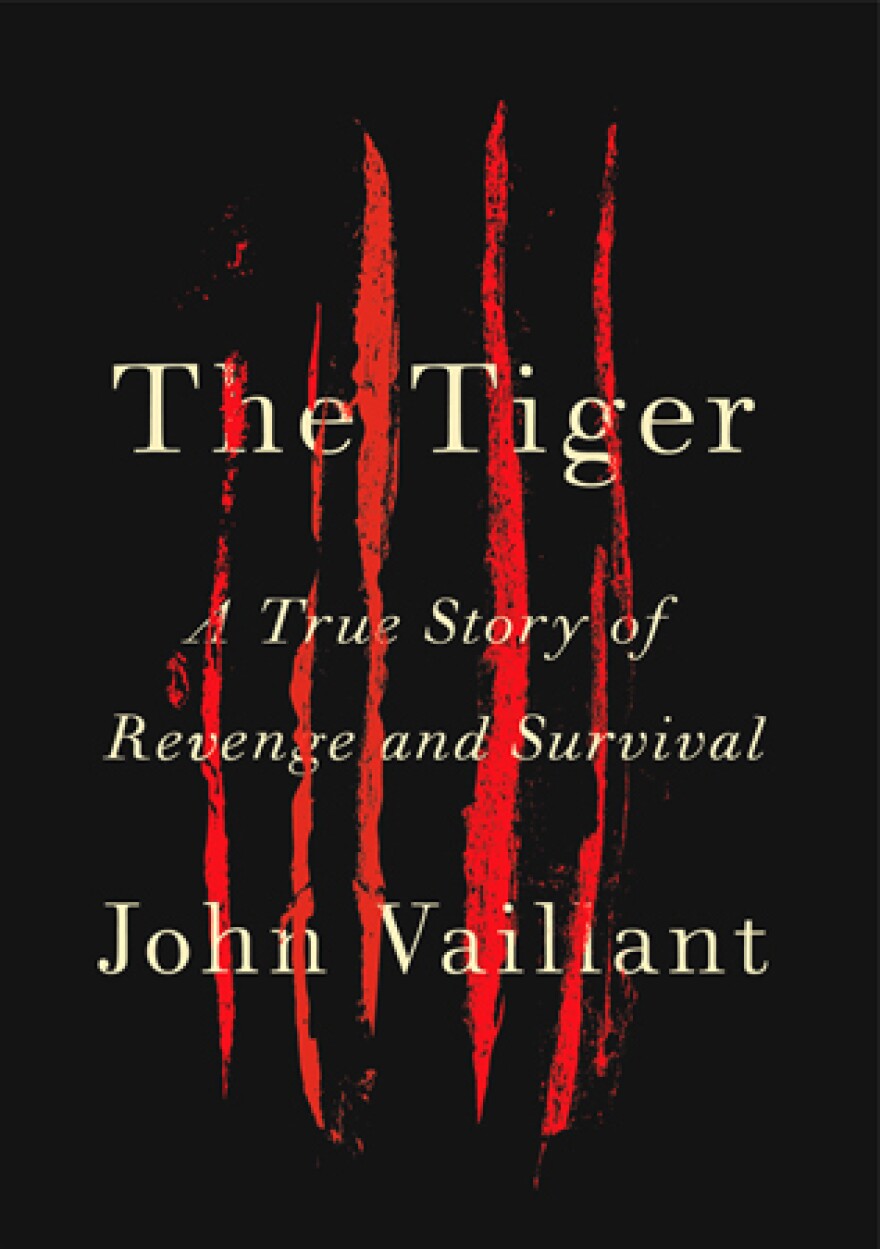My great passion is for nature books, books about animals, their habits and habitats. Lately, that passion — which is no way misanthropic, or, well, only partly so — has focused on books about animals eating people, rather than vice versa.

The Devil's Teeth: A True Story Of Obsession And Survival Among America's Great White Sharks
By Susan Casey, paperback, 304 pages, Holt Paperbacks, list price: $15
The first of these, which brought me great comfort during the rigors of my last book tour, is The Devil's Teeth, by Susan Casey, a lively study of the Farallon Islands and the great white sharks that gather there annually. The biggest ones, which can measure 8 feet in girth, are females, comfortingly called "The Sisters" by the biologists who study them. One anecdote from the book stands out as exemplary of the whole business: A group of well-meaning people rescued a pair of injured sea lions in San Francisco Bay, nursed them back to health and vigor and then decided to release them in the pristine waters off the Farallons rather than in the bay, where some 95 percent of organisms are invasive species. They chartered a boat, motored out ceremonially to the islands and slipped the first sea lion overboard just seconds before one of the Sisters rose dramatically to behead it. Do they eat people? They don't really want to. But don't put it past them.

The Tiger: A True Story Of Vengeance And Survival
By John Vaillant, hardcover, 352 pages, Knopf, list price: $26.95
The second book in this line is John Vaillant's The Tiger, which deals with the ecology of Primorye, in Siberia, and its apex predator, the Siberian tiger. This is an animal that can weigh up to 600 pounds and, according to the author, is so fearless it has been known to attack brown bears, cousins to our grizzlies. At any rate, the present story concerns a hunter who shoots one of these tigers, with the notion of selling it for use in Chinese herbal remedies. The tiger objects. I won't ruin your collective dinners by talking about the remains of the hunter, which were reduced to his feet, still encased in their chewed-up boots, but I will say that this is one book in which you root for the animal.

Death In The Dark Continent
By Peter H. Capstick, hardcover, 256 pages, St. Martin's Press, list price: $24.95
The final book is an old favorite of mine, Peter Hathaway Capstick's Death in the Dark Continent, the title of which says it all. Capstick was one of the last big-game hunters, and this book, published in 1983, consists of his ensanguined reminiscences of his days in Africa. He divides the book up in five sections, each representing the major game animals (i.e., threats to the population). My favorite here is the section on leopards, which see very well in the dark and like to lurk around huts waiting for some unfortunate granny, or Junior, to step outside in the wee hours to answer the call of nature. Their propensity is to take hold of the skull and crush it.
And so, all in all, I recommend these books not necessarily as food for thought but instead because they are guaranteed to take you out of yourself and remind you that we — our species of hominid — are, on an elemental level, just food.
T.C. Boyle won the Pen/Faulkner Award for Fiction for his 1987 novel World's End. His latest book is When the Killing's Done: A Novel.
Three Books... is produced and edited by Ellen Silva with production assistance from Rose Friedman, Lena Moses-Schmitt and Amelia Salutz.
Copyright 2023 NPR. To see more, visit https://www.npr.org.


